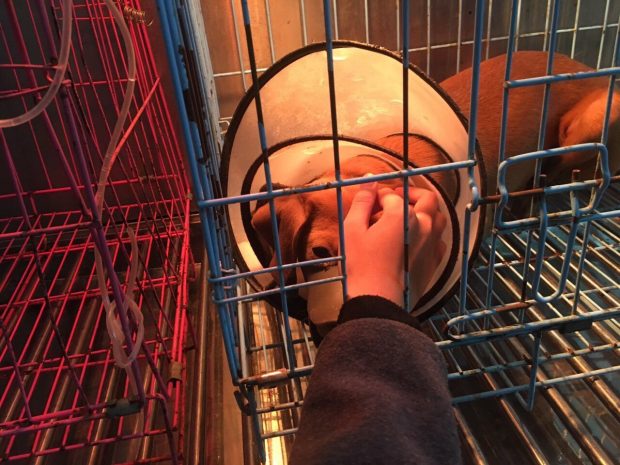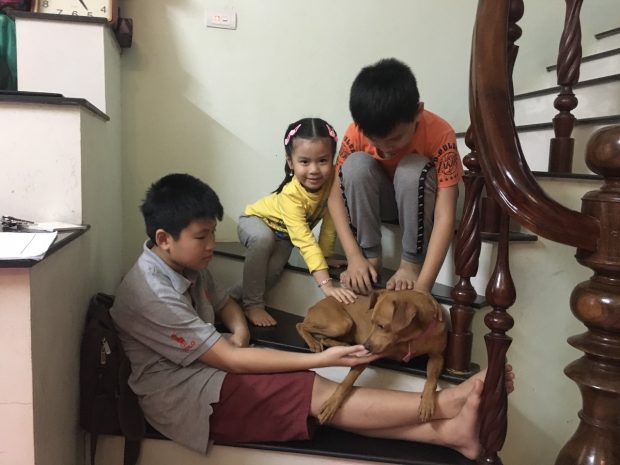Hanoi uses coronavirus discourage dog meat tradition

Vietnamese family and their pet dog
By Phong Lan
Vietnam
HANOI: It was the death anniversary of Hanh Nguyen’s grandfather and the large family were having a big party together. Someone was asking why there was no dog meat on the table. The Hanoi man answered that from now on there would be no dog meat on his table anymore.
“I’ve stopped eating dog meat following an advice from my friends and local authorities,” he said.
It was a difficult decision as Nguyen used to be a fan of dog meat. Like many of his friends and family members, he used to choose dog meat when eating out at restaurants or slaughter his family’s dogs for parties at home.
But Nguyen’s attitude to dogs and appetite for the dish have changed since he met his girlfriend who loves dogs a lot. She has kept some dogs and cats as pets at home and takes good care of them. She has joined an animal rescue team who save abandoned dogs and cats on Hanoi streets. Living with his girlfriend and her pets, Nguyen has gradually developed a sympathy for the animals.
Nguyen is among many young people in Vietnam who are treating pet dogs and cats differently from their older generations.
If their parents keep dogs only to help guard their home, cats to drive away mice or to have sources of tasty meat, many young people now see them as friends or family members.
According to Nguyen, one of the reasons leading to this change is global integration in which young people know more about the world, have more international friends and get influenced by their lifestyle.

Nguyen visits his pet dog as it is treated in a veterinary clinic in Hanoi
“My girlfriends used to eat dog meat but then stopped after going to study in the US,” he said. “She said she didn’t pay much attention to the feelings of dogs and cats until she watched her foreign friends play with them.”
“And her love for the pets developed as she lived with her friends and their cats. And mine has developed as I live with her and her pets.”
While the number of people having chance to get influenced by international friends’ pet loving attitude is still limited among the roughly 100 million population of Vietnam, local authorities in Hanoi and Ho Chi Minh, the country’s largest cities. have taken first steps to discourage locals from eating dog meat.
Last September, the Food Safety Management Authority of Ho Chi Minh City published an article on its website that discouraged locals from eating dog meat, warning of some diseases such as rabies and parasites infecting internal organs.
“Chemical residues in dog meat, particularly those from poisons used to kill dogs by dog thieves, are another threat to eaters,” the authority said.

Vietnamese children play with a pet dog
The authority in HCM City also said that eating dog meat is not a good habit so people should kick it, especially in this era of international integration. Quitting eating dog meat would benefit ongoing efforts to create an image of a modern and civilised Vietnam.
Earlier, Hanoi also called on locals to stop eating dog meat as the habit might spoil the image of the capital. A survey showed that the number of restaurants selling dog and cats meat has decreased by 30 per cent to 793 as of early this year. The Vietnamese capital is expected to suspend all these restaurants in the city centre by 2021.
Recently when the coronavirus outbreak started to spread, Hanoi’s health officials also warned people about the transmission of some kinds of virus through eating dog and cat meat.
The city’s chairman Nguyen Duc Chung once again called on people to stop consuming the meat of wild animals as well as cats and dogs as one of the measures to prevent coronavirus.

























































